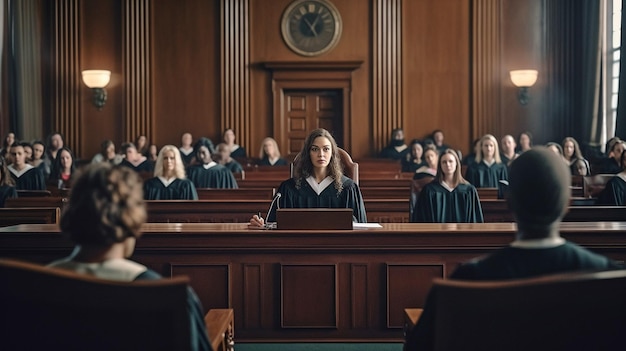When a civil case doesn’t go the way you hoped at trial, the appeals process can feel like a path to redemption. Many people believe an appeal offers a second chance to argue the same facts in front of new judges. But that isn’t how appellate courts work; instead, appeals are focused on legal errors, not re-litigating witness testimony or re-examining evidence.
So how do you realistically assess your chances of success on appeal? It starts with understanding what appellate courts look for, what standards they apply, and how the strengths and weaknesses of the original case affect the odds.
Appeals Are About Legal Errors, Not Disagreement With the Outcome
The most common misconception about appeals is that they exist to “fix bad decisions.” In reality, appellate courts review the trial court’s proceedings for legal mistakes that affected the outcome.
That means you can’t simply argue the judge misunderstood evidence or the jury made the wrong call. Instead, you must point to a specific legal error. Examples include misinterpreting statutes, misapplying a legal standard, improperly admitting or excluding evidence, or giving the jury incorrect instructions. In other words, appeals are not do-overs; the appellate court assumes the trial court got things right unless you can show where and how the law was misapplied.
The Standard of Review Matters More Than Most People Realize
How much deference the appellate court gives the trial court depends on the standard of review. This single factor can dramatically affect your chances of success.
Different issues have different standards, and they range from highly deferential to highly exacting. For instance, findings of fact are usually reviewed for “clear error,” meaning the appellate court overturns them only if there is strong evidence they were wrong. Discretionary rulings, like evidentiary decisions, are typically reviewed for “abuse of discretion.” And pure questions of law are reviewed “de novo,” meaning the appellate judges consider the issue fresh without deferring to the trial court.
Cases involving legal interpretation or constitutional questions often have a better chance because they fall under less deferential review. In contrast, cases that hinge on factual disputes or evidentiary judgments are much harder to overturn.
Preservation of Error Is Critical
Even if a legal error occurred, you may not succeed unless the issue was properly preserved at trial. That means the trial attorney objected at the right time and on the right grounds. If no objection was made, the appellate court may apply a “plain error” standard, which is extremely difficult to satisfy. This is why skilled trial counsel matters not just for trial, but for appeal. A clean record gives the appellate lawyer the foundation they need to argue successfully.
The Record Is Everything
Appeals are decided based on the trial record, and not new facts, new arguments, or new evidence. Transcripts, filings, and admitted exhibits form the universe the appellate court considers. If a point wasn’t raised in trial, if evidence wasn’t entered into the record, or if arguments weren’t made in a timely way, they generally cannot be introduced on appeal.
This can surprise litigants who think an appellate lawyer can “fix” what happened earlier. In truth, appellate advocacy often succeeds or fails based on how well the trial record was developed.
Realistic Success Rates Are Lower Than Many Expect
Although outcomes vary widely by jurisdiction and case type, civil appeals succeed less often than people assume. Many appeals courts affirm trial decisions more frequently than they reverse them. This doesn’t mean appeals are hopeless. It means strong appellate cases are built on specific, substantive legal errors, and not frustration with the outcome. Appeals are won through precision, careful reasoning, and persuasive legal argumentation grounded in the record.
The Importance of Experienced Appellate Counsel
Appellate advocacy is its own discipline. While trial attorneys build facts and persuade juries, appellate lawyers analyze the record, research legal doctrine, and craft highly structured arguments.
The best appellate lawyers identify viable issues and discard weak ones, understand how appellate judges think and write, know how to frame arguments within the right legal standards, and present the case clearly and concisely in written and oral form. Success on appeal often comes down to precision; a compelling, narrowly focused argument carries more weight than a scattershot attempt to challenge everything.
Calculating the Odds
Appealing a civil case requires a different mindset than preparing for trial. Your chances of winning depend on the strength of legal issues, how the trial record was built, and the standard of review the appellate court applies. If you believe your trial involved a legal error that materially affected the outcome, an appeal may be worth pursuing. With clear issues, a well-preserved record, and experienced appellate counsel, your arguments stand their best chance of success.






